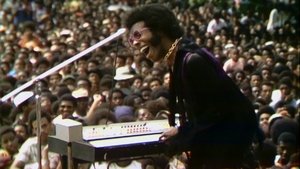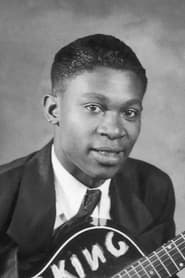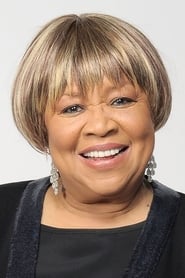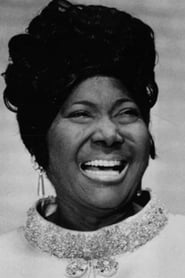Cast
View AllStevie Wonder
as Self
Lin-Manuel Miranda
as Self
Chris Rock
as Self
Tony Lawrence
as Self
Nina Simone
as Self (archive footage)
B.B. King
as Self (archive footage)
Abbey Lincoln
as Self
Mavis Staples
as Self
Mahalia Jackson
as Self (archive footage)
David Ruffin
as Self
Sly Stone
as Self
Hugh Masekela
as Self
John V. Lindsay
as Self (archive footage)
Ray Barretto
as Self
Herbie Mann
as Self
Crew
Director
- Questlove
Producer
- David Dinerstein
- Robert Fyvolent
- Joseph Patel
Reviews
Louisa Moore - Screen Zealots
The times, they were a’changin’ in the summer of 1969, with many turning to music as a vehicle to help them express their feelings on important social and political issues. The most famous music festival of all time, Woodstock, has seen its concert footage shown the world over. That same year in New York, over 300,000 people attended the predominantly African-American concert series known as the Harlem Cultural Festival.
The filmed performances of some of the most important artists in black music history sat in a basement for five decades, only to finally be seen in “Summer Of Soul (…Or, When The Revolution Could Not Be Televised),” a documentary by first-time director Ahmir-Khalib “Questlove” Thompson. This concert film is a cultural and historical treasure trove of American music that shines a light on black art and culture in the late Sixties.
For those who are seeking a well-rounded music education, this film is a must-see. The documentary makes extensive use of the never-before-seen footage, often letting the musical performances speak for themselves. Thompson weaves file footage and interviews with festival artists and attendees that share their stories on African-American popular culture. You can tell just how important the Harlem Culture Festival was to everyone involved, and some of the best clips in the film are shots of the faces in the crowds, all of them radiating pure joy.
Clocking in at two hours, the film could stand a little editing. Since he is a musician himself, I understand Thompson’s tendency to include as much of every single performance as possible, but the film suffers because of it and drags on a bit too long. But just as my interest would wane, I’d get drawn back in almost as quickly with an enthralling anecdote from the likes of Jesse Jackson or Marilyn McCoo, or a moving performance from talents like Mavis Staples and Mahalia Jackson.
“Summer Of Soul (…Or, When The Revolution Could Not Be Televised),” is a stunning historical record that captures a moment in time when the stories of black America weren’t always told, and it lifts up their voices in the process.
Mar 9, 2021
badelf
In 1969, besides Woodstock, there was also an unknown Summer of Soul Festival in New York. More specifically, in Harlem. If you're a music buff (I am), this is a must-see film. It includes amazing performances that we would otherwise not have seen. Eclipsed by Woodstock, the recordings found no takers at the time and sat in a basement for 50 years. Unearthed by Questlove, and interlaced with pertinent interviews, the music speaks for film.
Nov 18, 2022
Thematic Analysis
Summer of Soul (...Or, When the Revolution Could Not Be Televised) represents a fascinating example of Music/Documentary/History cinema, offering viewers a unique perspective on the human experience and societal structures. The film's approach to its themes demonstrates a creative vision that distinguishes it within its genre.
Director Questlove brings their distinctive visual style to this film, continuing their exploration of themes seen in their previous works while adding new elements. Their approach to pacing and visual storytelling creates a viewing experience that rewards close attention.
Released in 2021, the film exists within a cultural context that continues to evolve with our understanding of its themes. Its critical acclaim reflects its artistic achievements and its place in cinema history.
Did You Know?
- The production of Summer of Soul (...Or, When the Revolution Could Not Be Televised) took approximately 36 months from pre-production to final cut.
- The final cut of the film runs for 117 minutes, though the director's initial assembly was reportedly 171 minutes long.
- Some visual effects sequences took up to 6 months to complete.
- The musical score contains over 35 unique compositions.
- The director insisted on using practical effects whenever possible, reserving CGI for only the most necessary scenes.
Historical Context
- In 2021, when this film is released:
- Streaming platforms had largely replaced traditional cinema and television models.
- The COVID-19 pandemic transformed global health, economics, and social interaction.
- Streaming platforms were disrupting traditional distribution models and changing how audiences consumed films.
How This Film Stands Out
While Summer of Soul (...Or, When the Revolution Could Not Be Televised) shares thematic elements with other films in its genre, it distinguishes itself through its unique approach to storytelling, visual style, and character development.
Unlike The Right Stuff, which focuses more on action than character development, Summer of Soul (...Or, When the Revolution Could Not Be Televised) subverts genre expectations by exploring its themes with greater nuance.
While films like Lenin kam nur bis Lüdenscheid - Meine kleine deutsche Revolution and That Thing You Do! explore similar territory, Summer of Soul (...Or, When the Revolution Could Not Be Televised) stands apart through its deeper exploration of its central themes and more complex characterization.
This film's unique contribution to cinema lies in its thoughtful balance of entertainment value and thematic depth, making it a valuable addition to its genre.
Details
- Release Date: July 2, 2021
- Runtime: 1h 57m
- Revenue: $3,696,069
Where to Watch




















